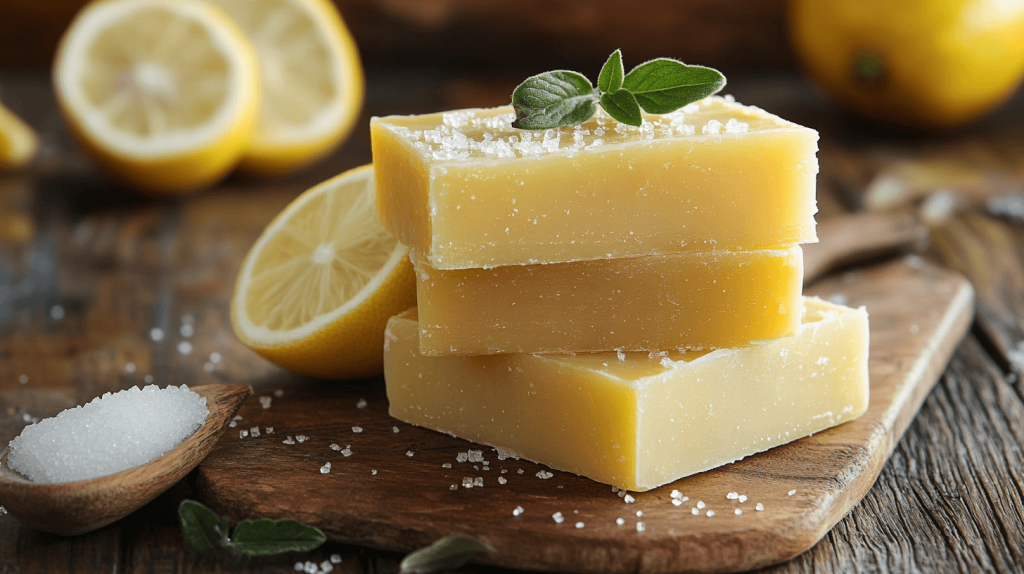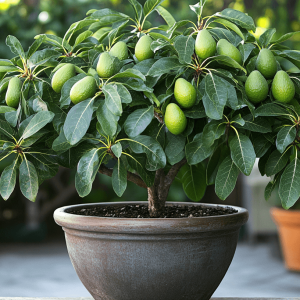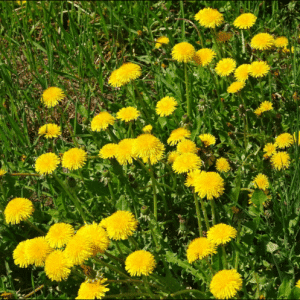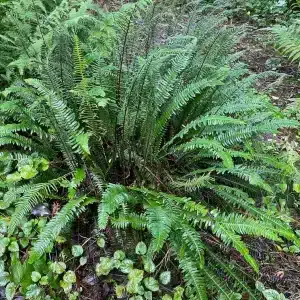
Making your own soap at home is a rewarding way to avoid harsh chemicals and create a personalized product. Below is a detailed recipe for a natural, homemade soap thatâs gentle on the skin and packed with the fresh scent of lemon.

Ingredients Youâll Need
- Natural Glycerin Soap Base (or Castile soap) â 400g
- This serves as a gentle and natural soap base. Ensure it’s free from synthetic additives.
- Distilled Water â 500 ml
- Used to ensure the soap mixture remains pure and free from contaminants.
- Fresh Lemon Juice â 70 ml
- Adds a refreshing scent and mild cleansing properties.
- Coconut Oil â 50 ml
- Provides moisture and creates a creamy lather.
- Sugar â 200g
- Acts as a gentle exfoliant and helps create a silky texture.
- Essential Lemon Oil â 10â15 drops
- Enhances the citrus scent and adds antibacterial benefits.
Equipment Needed
- Double boiler or heat-safe bowl and saucepan
- Silicone soap molds (or any plastic containers)
- Stirring spoon or whisk
- Grater
- Measuring cups
Preparation Steps
1. Prepare Your Soap Base
- Grate the natural glycerin soap base or Castile soap into fine pieces. This helps it melt evenly.
2. Melt the Soap Base
- Place the grated soap in a double boiler or heat-safe bowl over simmering water.
- Stir continuously until the soap melts into a smooth, liquid consistency.
3. Mix the Ingredients
- Once the soap base has melted, slowly add the distilled water while stirring.
- Incorporate the lemon juice and sugar into the mixture, ensuring everything blends well. Let it simmer for about 2 minutes to dissolve the sugar completely.
4. Add Oils for Moisture and Fragrance
- Remove the mixture from heat and let it cool slightly.
- Stir in the coconut oil and essential lemon oil. Mix thoroughly to ensure an even distribution.
5. Pour into Molds
- Carefully pour the soap mixture into silicone molds or prepared containers.
- Tap the molds gently to remove air bubbles.
6. Let the Soap Set
- Allow the soap to cool and harden at room temperature for about 6â8 hours, or until fully solidified.

Why This Soap is Special
- Chemical-Free: Free from sulfates, parabens, and artificial fragrances.
- Moisturizing: The coconut oil ensures your skin remains soft and hydrated.
- Refreshing Scent: The natural lemon oil provides an invigorating aroma.
- Exfoliating: Sugar gently removes dead skin cells for smoother skin.
Storage Tips
- Store the soap bars in a cool, dry place.
- If wrapped in parchment paper or stored in an airtight container, they can last for several months.
Usage
Use this soap for daily washing to enjoy its natural benefits. Its gentle formula makes it suitable for all skin types, including sensitive skin.
Enjoy crafting your homemade, natural soap and the satisfaction of knowing exactly what goes into the products you use! ð¿






